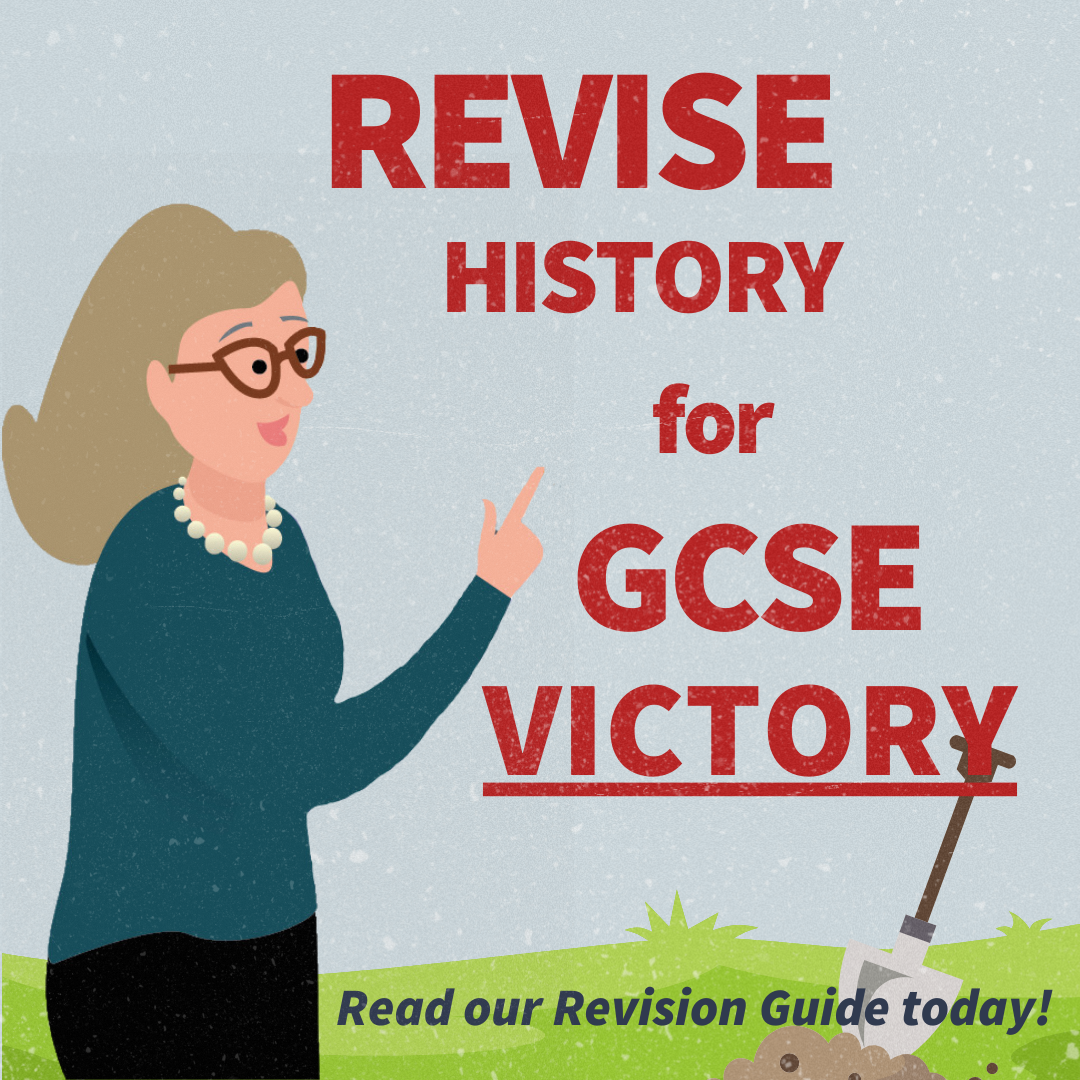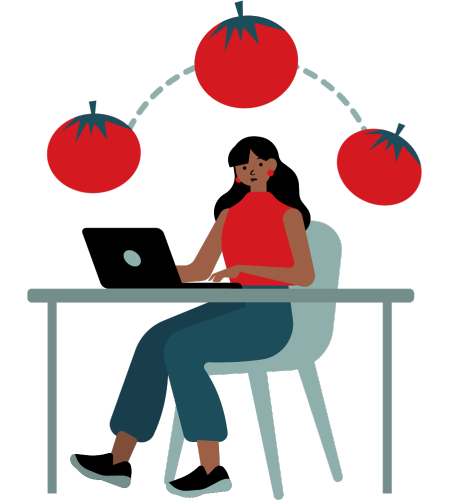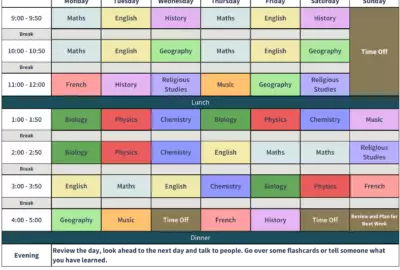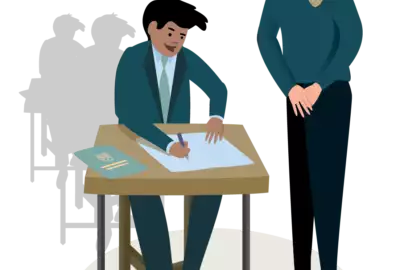
How to Revise Effectively for GCSE History: A Comprehensive Guide
Whichever exam you are studying for, it is important to have a revision plan. History GCSE can seem especially daunting as there is a lot of content, a lot of names and a lot of dates to remember. In this guide we will mention a few of our favourite expert Tips and Techniques to help you revise effectively and achieve those top grades.
Need more GCSE support?
GCSE History Revision Tips
Start Early
You can start putting together revision resources even as you learn new topics. Making detailed notes from the beginning is like writing your own revision textbook. Use highlighters for key dates and information to help you find them easily later. This will also help avoid last-minute cramming which is never a good revision tip.
Use Exam Board Specifications
Make sure you are clear about the specifications for your exam board. What are the essential topics and skills? Where are most marks allocated? Being clear about exam expectations will help you prioritise revision content.
Colour Code
Use colour to organise your notes, revision aids and timetable. Use colour to link information. Use colour to help you find information quickly. Always. Period.
Put Together a Revision Timetable
A revision timetable is an absolute must. To make the best use of your study time, you need to plan out all your subject revision across the time you have available. Once you have made a timetable you will feel more in control and it will help ease those feelings of being overwhelmed.
You can find our guide to creating one here.
Vary Techniques
Luckily, people have already put in the hard work developing a range of proven revision techniques for you to use. Some of them are outlined in the next section. Use a variety of techniques to suit your learning style and to revise and remember different types of information.
This will not only help you retain information but will add some variety to your revision and help prevent boredom.
Take Frequent Breaks
It is important to factor in regular breaks. You can use a technique such as the Pomodoro technique, explained in detail further down this guide, or develop a system of your own. However you do it, make sure you include breaks. They will not only help you to maintain focus but will also help prevent fatigue and keep you motivated.
Structure Your Essay
Be sure you understand and can describe a good structure for a GCSE History answer. A good structure will help you show-off what you know in a clear and logical way to get you the most marks.
Always start by reading the question carefully, more than once. Are you being asked to interpret or evaluate sources? Contrast? Explain? Describe? Write an introduction that briefly restates the title and what your answer will contain – this will help you focus on the task. Include 3 or 4 Points, for which you can provide Evidence and an Explanation. End with a conclusion that summarises your argument and refers to your introductory
2.0 Top
GCSE History Revision Techniques
There are many techniques you can use to help with your History GCSE revision. We have outlined a few below and would recommend you use a range of techniques for maximum success.
2.1Mock Exams
Mock exams are an important part of the revision process. They will help you to experience what it is like to be in an exam setting, answering questions within a strict time limit. Mock exams are useful both near the beginning of the process to provide context and identify gaps, and later when you are perfecting your exam technique
Past Papers
You can use questions from past papers in a variety of ways. You can answer them in timed conditions to test your exam technique. You can use them to help you identify weaker areas where you may need further revision. You can use them to familiarise yourself with the style and language of the questions.
Revision Guide
We have provided several revision guides which are designed to provide a concise summary of key topic information. They also offer exam technique guidance and practice questions.
Here are some of our other GCSE Revision Guides:
1. How to Get all 9s in your GCSEs?
2. The Ultimate GCSE Revision Guide
5. How to Revise for English Literature GCSE
6. Free GCSE Revision Timetable Template
Study Groups
Perhaps you are someone who studies best with other people? You can form a study group with your friends, and not only can you keep each other accountable, you can help each other by asking questions, sharing resources, or discussing tricky topics.
Timelines
A timeline is a great tool to use in revising for history. You can instantly see the sequence of key events which in turn can provide a valuable insight into cause and effect. They can also be a useful tool in remembering all those dates
Mind Maps
Mind maps are another useful technique especially for those who like their learning to be visual. Mind maps are particularly useful for summarising knowledge and making links between ideas in a topic. Who, what, where, when, how and of course why.
Flashcards
Flashcards can help you summarise information in key points – write the bullet points that are going to mean the most to you on separate pieces of card, shuffle them up and test yourself. Or get someone to choose cards at random and ask you questions. A great way to identify gaps as well.

Pomodoro Technique
I mentioned the Pomodoro technique earlier. This is used not just for revision but is great for any task which requires periods of intense focus. Using the Pomodoro technique, you work for 25 minutes, take a 5-minute break then go back to study for another 25 minutes. Repeat the study / break cycle four times before taking a longer break. Try it – it works!
The built in breaks help you to retain information without suffering burnout.
YouTube
Using other media such as YouTube can be a welcome change from reading. There are excellent channels covering all topics - just make sure you are clear on the right specifications for your exam board. This can be a fun way to supplement your more formal revision.
dia such as YouTube can be a welcome change from reading. There are excellent channels covering all topics - just make sure you are clear on the right specifications for your exam board. This can be a fun way to supplement your more formal revision.
Apps
There are several excellent Apps that can help with GCSE History revision. Here are a few that are available for iOS and Android:
At Ivy Education we have expert GCSE History tutors who can help with all aspects of study and revision. From exam specifications and developing your own revision timetable, to insights into topics and themes, and exam technique, an Ivy Education tutor will help you prepare a tailored programme for success.
For expert tips on acing your Maths exams, check out our guide on How to Revise GCSE Maths. If you're also looking to excel in English Literature, don't miss our comprehensive guide on How to Revise for English Literature GCSE. Together, these resources will help you achieve success in two of the most critical subjects.
3.0 Top
FAQs
You can start revising while you are still learning by making sure your notes are clear or by making flashcards of key ideas as you learn new information. As you approach the exams, you will need to develop a revision timetable that allows time to revise for all your different exams.
Reward yourself! Make sure you factor in breaks into your revision schedule and try a range of techniques to keep boredom at bay – including revision sessions with study buddies.
Start with creating a timetable which looks at the time you have available and lists the topics you need to cover. You can also timetable different techniques – when to watch a YouTube video discussing a key event; when to read your notes and make flashcards, when to tackle past papers. Go back and review your timetable weekly.
Find the strategies and techniques that work best for you. Make sure you allow time to revisit topics two or three times. This interleaving of topics and subjects has been shown to be a successful strategy for retaining information.
4.0 Top
Conclusion
In this Guide we have given you some tips and techniques to help you prepare for your GCSE History exam and make best use of your time.
At Ivy Education we have experienced tutors who can help you plan and prepare. We also have bespoke academic consultants who can help you with your pastoral needs, including Sixth Form selection, A Level help and university admissions support.
Other Articles

IGCSE vs GCSE: Differences You Should Know in 2026

What are IGCSEs?

Free GCSE Revision Timetable Template

GCSE Maths Exams Explained

How to Revise GCSE Maths

The Ultimate Guide to GCSE Revision

How to Get All 9s in your GCSEs?

How to Revise for English Literature GCSE
As featured in










